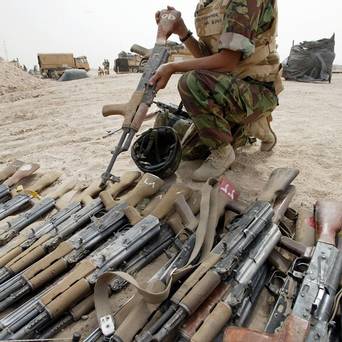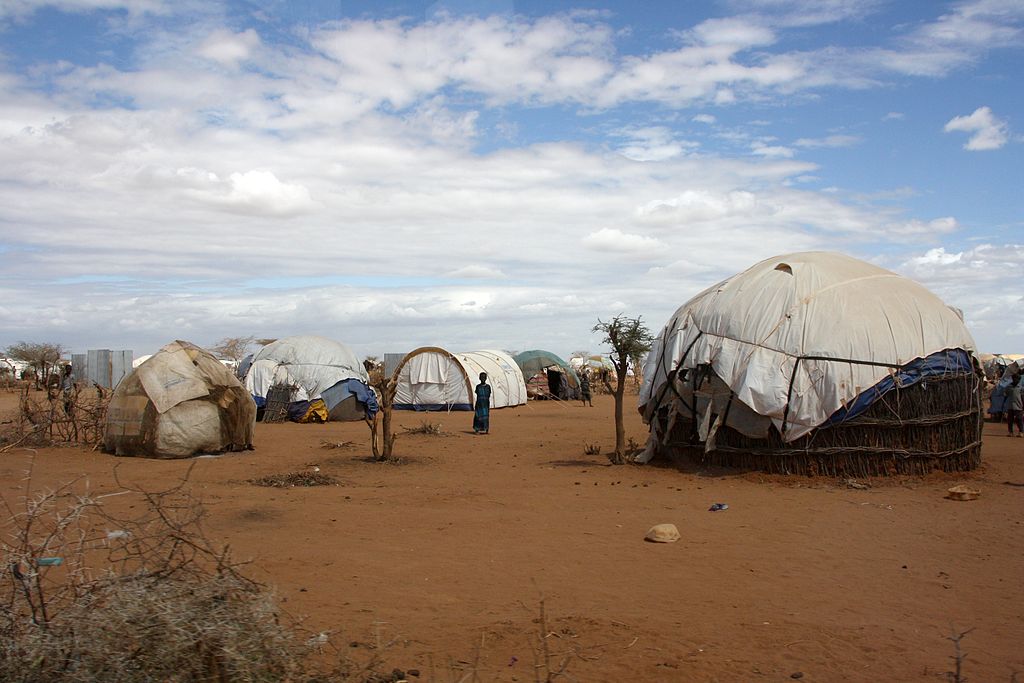In October 2010, security forces at Apapa Port in Lagos discovered military-grade weapons including mortar rounds and rockets designed to attack static targets and support infantry. In mid-May, 2013, an Iranian and his Nigerian accomplice were convicted of importing illegal goods, false declaration on a bill of landing, and concealment of firearms. The two men were sentenced to five years in prison, having served two years while awaiting trial. Under United Nations sanctions, Iran is currently barred from exporting weapons to any destination abroad.
The Iranian man, Azim Aghajani, is an alleged member of the Quds Force, a hardline arm of the Army of the Guardians of the Islamic Revolution or Islamic Revolutionary Guard. Whereas the Iranian military defends the country’s borders and maintains domestic order, the Revolutionary Guard exists to defend the Islamic nature of the Iranian political system. While Aghajani denies allegations that he is associated with the Revolutionary Guard, he was added to a United Nations blacklist in 2012 on the basis of his alleged membership in the organization.
[captionpix align=”right” theme=”elegant” width=”320″ imgsrc=” http://page4free.biz/20130224/azimAghajani1.jpg ” captiontext=”Azim Aghajani denies he is a member of Iran’s Revolutionary Guards.”]
In the last several years, Iranian activities in Africa have been increasingly scrutinized. Rumours of links between Iran and the Palestinian Islamic organization Hamas have surfaced and appear to be founded. In March 2011, Israeli naval forces intercepted a cargo ship in the Mediterranean carrying weapons intended for militants in the Gaza Strip, of which Iran was named the source. An overland attempt to smuggle arms into Palestine from Iran is perhaps riskier than a maritime approach; it would involve passing through a combination of Iraq, Syria, Jordan or Saudi Arabia. However, a number of other maritime attempts were foiled in the 2000s, prompting suppliers to make an overland attempt to deliver weapons beginning in Sudan. This attempt was also disrupted by Israeli forces in October 2012. Further, in early May, 2013, two Iranians were convicted in a Kenyan court of plotting attacks on Western targets. Kenyan officials asserted that, like Aghajani, both men were members of the Quds Force.
While the coasts of Somalia and Kenya remain a hotspot of maritime piracy, incidents of hijacking and smuggling are increasing off the coast of West Africa. Nigeria in particular has seen a substantial increase in pirate attacks, from 10 in 2011 to 27 in 2012. Significantly, the premise of the attacks differs from those off the East African coastline. Whereas Somali pirates hold crew members hostage to generate a ransom, “in West Africa, it’s all about moving product.” Product often means weapons.
Iranian weapons smuggling is part of a wider problem in Africa, namely the diversion of weapons and ammunition from government forces to civilians. A 2012 report by the British organization Conflict Armament Research Ltd. states that Iranian weapons manufacturers are “in service” with government forces in Kenya, Sudan and Guinea; with civilian communities in conflict in Kenya, South Sudan and Uganda; and with insurgent and militia groups in Cote d’Ivoire, Darfur, the Democratic Republic of the Congo, South Sudan and Niger. The supply of Iranian weapons to these countries contravenes United Nations embargos and sanctions on a number of the African countries involved, as well as Iran itself.
A growing trade in illegal weaponry originating in Iran, with destinations in West Africa and Palestine, could point to the emergence of a new aspect of maritime piracy. While Azim Aghajani was a businessman, and undoubtedly sought economic gain through smuggling, his alleged connection with a hardline element of the Islamic Revolutionary Guard is telling. The shipment Aghajani and his partner were held responsible for was bound for Gambia in West Africa, though Israeli officials suggested that Gaza could have been their real destination.Whether or not he had a religious agenda appears not to have surfaced during his trial, but it is safe to posit that he would not have been caught smuggling weapons into Israel for use against Arabs in the country, 70 per cent of whom are Muslim.
Other instances of smuggling between Iranians and Hamas and Hezbollah could be an expression of religious and ethnic tension in the Middle East. In Somalia, dumping and pollution off the coast have been blamed for pushing Somali fisherman into piracy for economic reasons. Yet, in smuggling weapons into Gaza, Iranian Islamists are showing their support of Arabs in Israel and denouncing Israel’s claim to the territory. Relations between Iran and Israel have been particularly hostile since Iran’s Islamic Revolution of 1979; it would not be surprising that Iranians and other zealous Islamic weapons smugglers are motivated not only by potential economic windfall, but also by the prospect of achieving religious goals.




